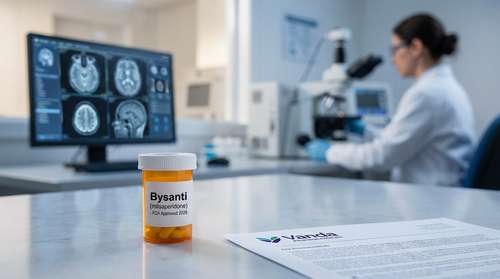The recent buzz around psilocybin’s potential benefits has stepped into a new arena: tackling the challenges of irritable bowel syndrome, or IBS. It might seem surprising, but researchers are now looking into this naturally occurring compound with hope that this might be a breakthrough in gut health management. If you’ve ever experienced gut bloating or indigestion, you might be curious about how something as unusual as a mushroom compound could ease your discomfort.
The Rise of Psilocybin in Clinical Research
This section explores the recent interest in psilocybin, a compound found in certain mushrooms, and how it is being evaluated by experts familiar with clinical research management. Over the last few years, psilocybin has been ushered in as a potential solution to a variety of mental and physical ailments. The research has recently extended its scope from mental health to gastrointestinal disorders like IBS. Could this compound that changes perceptions also reframe our understanding of the gut-brain connection?
The buzz isn’t unwarranted. Clinical trials at a respected clinical research center have begun investigating the role of psilocybin on digestive health. Researchers are now exploring not just psychological benefits but also improvements in the symptoms of indigestion. It’s quite interesting, as many patients with IBS experience a constant tug-of-war between chronic pain and mental stress. Trials that once focused on mental health now evaluate multiple dimensions, including gut health, digestive performance, and gut bloating.
In a series of well-structured clinical trials, experts hope to assess how psilocybin interacts with the gut-brain axis. These studies have prompted both excitement and skepticism in the medical community. As we await clearer evidence from these efforts, the intersection of clinical research management and novel treatments offers a fascinating narrative for anyone interested in holistic health approaches.
Understanding the Science Behind the Study
This segment delves into the science behind psilocybin and its potential effects on IBS symptoms. It highlights the dual relationship between the brain and the digestive system—a connection that might just hold the key to relief for many sufferers.
Researchers are not treating this as a magic bullet but rather a potential tool in the broader context of managing IBS. Emerging evidence suggests that psilocybin may influence the way the brain processes pain and stress, which often exacerbate conditions like gut bloating or indigestion. The idea is that by altering perception and managing stress, psilocybin could lead to an improvement in digestive symptoms, creating a beneficial cycle of healing.
It’s almost as if the compound is acting like a mediator between two troubled neighbors—the brain and the gut. By smoothing over the constant friction, psilocybin could help them work in tandem, reducing the impact of chronic abdominal pain.
Interestingly, current pharmacological treatments for IBS sometimes fall short in addressing people’s diverse symptoms. This new approach resonates with those who look beyond traditional methods, considering alternatives like clinical trials and even probiotics for gut health. The ongoing study is a reminder that sometimes, the solution might come from an unexpected source.
Patient Perspectives and the Role of Clinical Trials
This brief introduction praises the importance of clinical trials in shaping our understanding of treatments and highlights real patient expectations. Many patients battling IBS can attest to the frustration of continuous discomfort, making new treatments especially appealing.
Participating in these trials means patients are not only observing a new potential treatment but contributing directly to changing the landscape of digestive and gut bloating therapies. Some individuals have shared their stories of trying probiotics for gut health, which, while helpful, didn’t always support the broader spectrum of IBS symptoms.
It’s like trying to fix a leaky pipe with just a band-aid. Patients who have battled constant indigestion and other discomforts view these trials as a beacon of hope. They are eager to see if psilocybin might be the answer that provides a more holistic remedy. Such testimonials, though still emerging, underscore the intense interplay between psychological comfort and physical relief.
Moreover, the idea behind using psilocybin doesn’t solely revolve around symptom management; it’s also about paving the way for a better understanding of the intricate link between mental health and gut health. This relationship has long been noted, and studies spearheaded by experts familiar with clinical research management are now trying to decode it further. If successful, the research could lead to more personalized treatment strategies that address both the digestive system and the emotional well-being of patients.
The Intersection of the Mind and Gut
This section serves as a quick overview to explain why the relationship between the brain and the gut is crucial to understanding the full potential of psilocybin in treating IBS. One of the more captivating aspects of this study is how it explores this complex connection.
The gut is often referred to as the “second brain” due to its intricate network of neurons that communicate with the central nervous system. When stress and psychological burdens hit, the gut reacts, sometimes with severe digestive consequences like gut bloating and pain. Exploring psilocybin’s role here can potentially reveal much about treating conditions that involve both mental and digestive disturbances.
By engaging with both the mind and the gut, researchers hope to dismiss the longstanding notion that these systems act in isolation. Instead, they offer an integrated perspective that may lead to innovative treatments for IBS. This is not just about reducing symptoms; it’s about transforming the patient’s overall quality of life. If successful, this integrated approach could redefine how we treat chronic digestive issues in the future.
The research, while still in its early days, is being monitored closely by experts in clinical research management who are excited about the possibility of a breakthrough. The investigation into psilocybin’s effects on both psychological stressors and digestive discomfort might hold the key to new treatment paradigms for those struggling with IBS on a daily basis.
Looking Ahead: What This Means for IBS Treatment
This final section wraps up the discussion with a forward glance at the broader implications of the study. It offers reassurance and curiosity for the future of indigestion management and overall gut health improvements.
With ongoing trials and increasing interest from the scientific community, there is a genuine sense of optimism. For those suffering from IBS, every new study is a step toward a better understanding and potentially more effective treatment strategies. The connection between psilocybin’s mind-altering properties and its physical benefits might set the stage for not only addressing IBS symptoms but also improving the overall well-being of patients.
This study is a reminder that sometimes, stepping outside conventional treatment methods can lead to amazing discoveries. Just as probiotics for gut health have improved many lives, psilocybin may soon join the ranks as a complementary option. The journey is still just beginning, but there is plenty of hope on the horizon for anyone who has ever experienced the frustrations of chronic digestive difficulties.
In wrapping up, this blend of clinical research management enriched by targeted clinical trials offers a promising narrative. As we continue to monitor the developments from clinical research centers, there’s something undeniably exciting about the possibility that a natural substance could help restore balance between the brain and the gut. It’s a reminder that the future of medicine may be just as innovative as it is unexpected!




